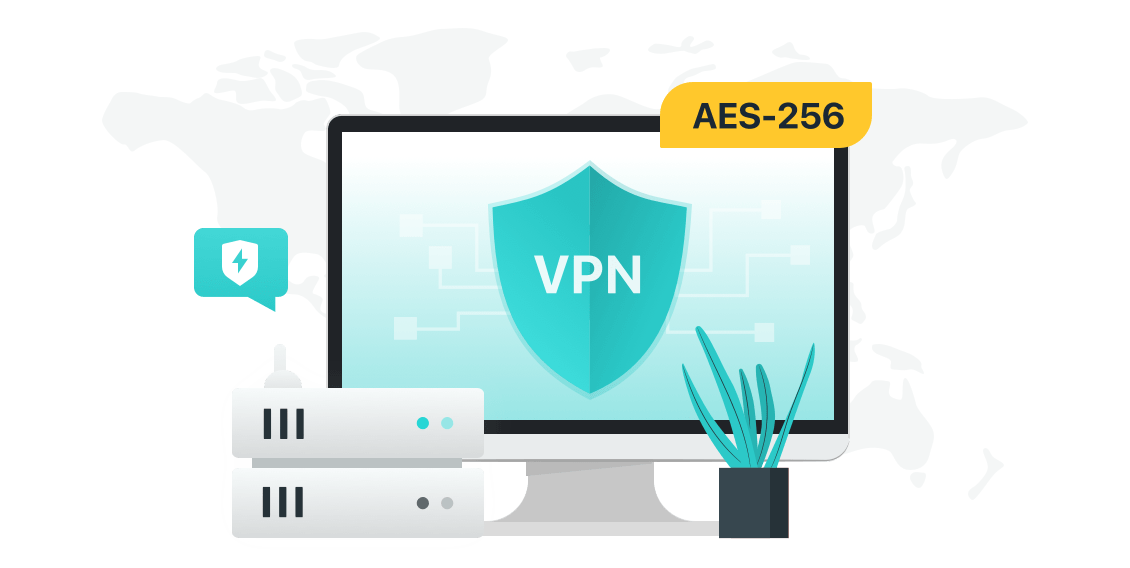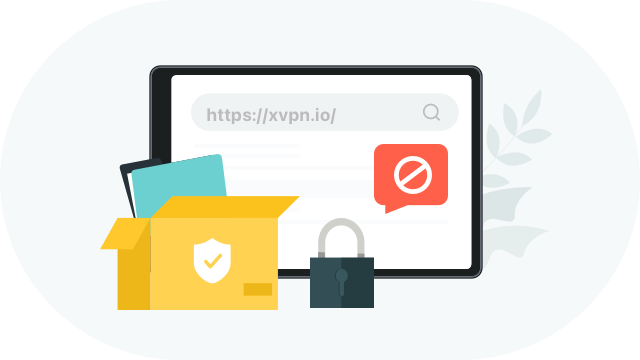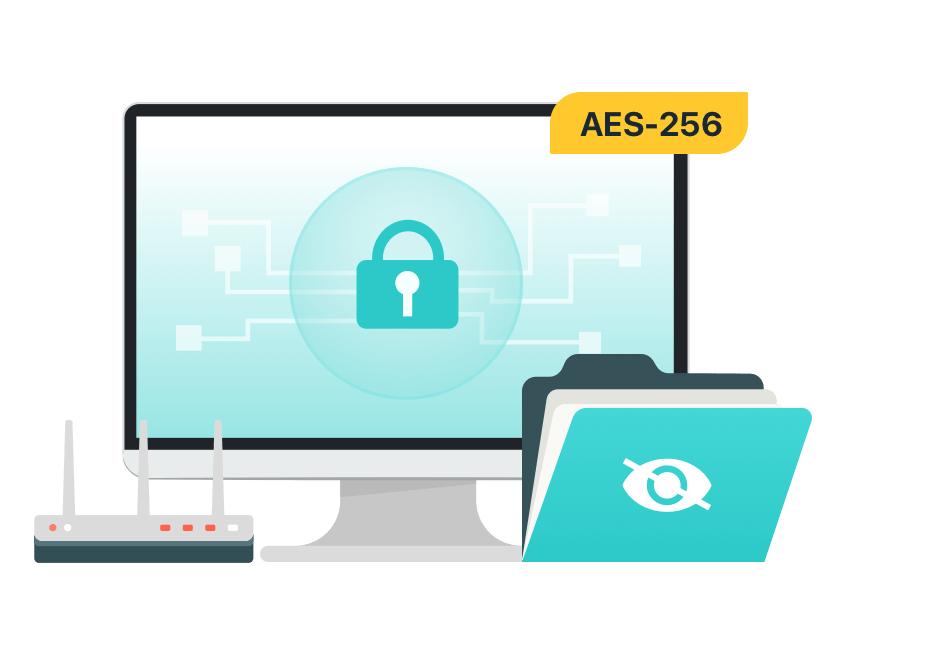گارانتی بازگشت پول در مدت 30 روز
ما باور داریم که X-VPN به شما بهترین خدمات VPN را ارائه میدهد. به هر حال، در صورت عدم رضایت، بدون هیچ گونه خطری میتوانید استرداد دریافت کنید.
از X-VPN بدون هیچ ریسکی امتحان کنید
ما از کوکیها برای ارائه خدمات بهتر و تجزیه و تحلیل ترافیک استفاده میکنیم. برای کسب اطلاعات بیشتر درباره کوکیها، لطفاً به بیانیه کوکی ما مراجعه کنید. با ادامه مرور وب سایت ما، شما با استفاده از کوکیها موافقت میکنید.
ما از کوکیها برای ارائه خدمات بهتر و تجزیه و تحلیل ترافیک استفاده میکنیم. برای کسب اطلاعات بیشتر درباره کوکیها، لطفاً بیانیه کوکی ما را مشاهده کنید.
وب سایت ما برای عملکرد صحیح به این کوکی ها وابسته است.
این کوکی ها برای حفظ ترجیحات شما استفاده می شوند، مانند انتخاب زبان.
کوکیها به ما امکان میدهند تا درک بهتری از بازدیدکنندگان خود داشته باشیم و مرور وب آنها را بهبود بخشیم.
کوکی هایی که برای پیگیری تبدیلات برای پلتفرم های تبلیغاتی استفاده می شوند.
با توجه به محیط شبکه جهانی پیچیده و متنوع، پروتکل های VPN منبع باز سنتی مانند OpenVPN، IPSec و WireGuard اغلب با خطر مسدود شدن و عدم امکان اتصال مواجه هستند. برای تضمین دسترسی عادلانه به خدمات VPN برای کاربران در سراسر جهان، X-VPN پروتکل Everest را معرفی کرد - یک VPN خصوصی که امنیت پیشرفته، پروتکل های انتقال UDP، TCP، TLS و ویژگی های ضد مسدودیت را ترکیب می کند.
دریافت X-VPN
پروتکل اورست یک پروتکل VPN خصوصی است که از بالاترین سطح فناوری رمزنگاری AES-256 صنعت استفاده می کند و انواع مختلف پروتکل های انتقال را پشتیبانی می کند، از جمله UDP، TCP، HTTP، و TLS.
علاوه بر این، پروتکل اورست کل پروتکل را مبهم و پنهان می کند، که باعث می شود تشخیص و شناسایی آن دشوارتر شود. این امر باعث می شود کاربران بتوانند از تجربه اینترنتی امن و خصوصی لذت ببرند.

در کل، پروتکل اورست یک پروتکل VPN است که دارای قابلیت های امنیتی و ضد مسدود کننده قدرتمندی است و به کاربران یک محیط شبکه ای امن، سریع و پایدار فراهم می کند.

امنیت تقویت شده با رمزگذاری AES-256 برای اطمینان از حفاظت داده های شما.

دور زدن از محدودیت های رسانه با استفاده از تکنیک های پیچیده تاریکی.

بهینه سازی شده برای سرعت، تجربه مرور بی درز را فراهم می کند.
پروتکل ابهام در X-VPN برای باز کردن شبکه های محدود استفاده می شود. بدون ابهام، ISP ها می توانند به طور دقیق ترافیک VPN را شناسایی کنند و آن را مسدود کنند. با این حال، هنگام اتصال به VPN با یک پروتکل ابهام، محتوای داده تغییر می کند، که باعث می شود ISP ها آن را نشناسند و مسدود کردن آن دشوار شود. علاوه بر این، ابهام به نوعی امنیت داده ها را افزایش می دهد.
دریافت X-VPN

پنهان کردن پروتکل ها روش دیگری برای دور زدن سانسور است. درخواست های داده به صورت دسترسی به محتوای مجاز توسط سانسور مخفی می شوند، مانند صفحات وب برای Google، Apple، Amazon و سایر وب سایت ها، فریب دیواره های آتش و برداشتن سانسور.
تمام پروتکل های اورست از رمزنگاری AES-256 استفاده می کنند، استاندارد رمزنگاری پیشرفته ای که توسط موسسه ملی استانداردها و فناوری (NIST) در سال 2001 منتشر شد. این یکی از محبوب ترین و شناخته شده ترین الگوریتم های رمزنگاری متقارن است که با استفاده از طول کلید 256 بیتی برای ارائه امنیت بالا و توانایی های رمزنگاری قدرتمند استفاده می کند.


تمام پروتکل های استفاده شده توسط اورست طراحی شده اند تا سبک، ساده و سریع باشند، با بار کمتری برای اطمینان از سرعت انتقال داده ها به سریع ترین حالت ممکن. آنها همچنین پشتیبانی از مسیریابی چندگانه می کنند، امکان انتقال داده ها به صورت کارآمد در سراسر گره های متعدد را فراهم می کنند.
دریافت X-VPN
هدف اصلی پروتکل اورست این است که یک محیط آنلاین عادلانه و بدون محدودیت برای کاربران در سراسر جهان، از جمله مناطقی که سانسور اینترنتی شدیدی دارند، فراهم کند. اگر پروتکل اورست منبع باز بود، احتمالاً در مناطق خاصی مسدود می شد، که این امر از ارائه خدمات آن جلوگیری می کرد.
ما قول می دهیم که شما با X-VPN ایمن هستید. پروتکل اورست از رمزگذاری AES-256 و پنهان سازی کد برای اطمینان از امنیت داده ها استفاده می کند. ما هیچ داده ترافیکی یا اطلاعاتی را که بتواند کاربران را شناسایی کند، ثبت نمی کنیم. علاوه بر این، ما در حال حاضر بر روی باز کردن منبع بخش جمع آوری داده های پروتکل اورست کار می کنیم.
دریافت X-VPNX-VPN پروتکل های متعددی را بر اساس محیط شبکه جهانی توسعه داده است و به طور مداوم پروتکل های بیشتری را اضافه می کند.

پشتیبانی چت زنده ۲۴ ساعته یا میتوانید هر زمان به ما ایمیل بزنید به آدرس support@xvpn.io.
ما باور داریم که X-VPN به شما بهترین خدمات VPN را ارائه میدهد. به هر حال، در صورت عدم رضایت، بدون هیچ گونه خطری میتوانید استرداد دریافت کنید.
از X-VPN بدون هیچ ریسکی امتحان کنید
پروتکل های VPN روش هایی هستند که دستگاه شما به سرور VPN متصل می شود. آنها تعیین می کنند که چگونه داده ها منتقل و بر روی شبکه امن می شوند. پروتکل های متداول VPN شامل OpenVPN، IPSec، و WireGuard می باشد.
پروتکل اورست امنیت پیشرفته با رمزنگاری AES-256 را ارائه می دهد، از روش های انتقال چندگانه (UDP، TCP، HTTP، TLS) پشتیبانی می کند و شامل پنهان سازی برای جلوگیری از تشخیص و مسدود کردن است، ارائه یک اتصال امن تر و قابل اعتماد تر.
رمزگذاری اطمینان می دهد که داده های شما از دسترسی غیرمجاز محافظت می شود. پروتکل اورست از رمزگذاری AES-256 استفاده می کند، یکی از استانداردهای رمزگذاری امن ترین موجود.
بله، پروتکل اورست برای سرعت بهینه سازی شده است و شامل سرورهای اختصاصی برای استریمینگ و بازی با پینگ کم است، تضمین کننده تجربه ای صاف و بدون وقفه.
پروتکل اورست از فناوری های پنهان سازی و تغییر شکل برای دور زدن سانسور و جلوگیری از شناسایی استفاده می کند، که این امر آن را برای کاربران در مناطقی با قوانین اینترنتی سختگیرانه ایده آل می کند.